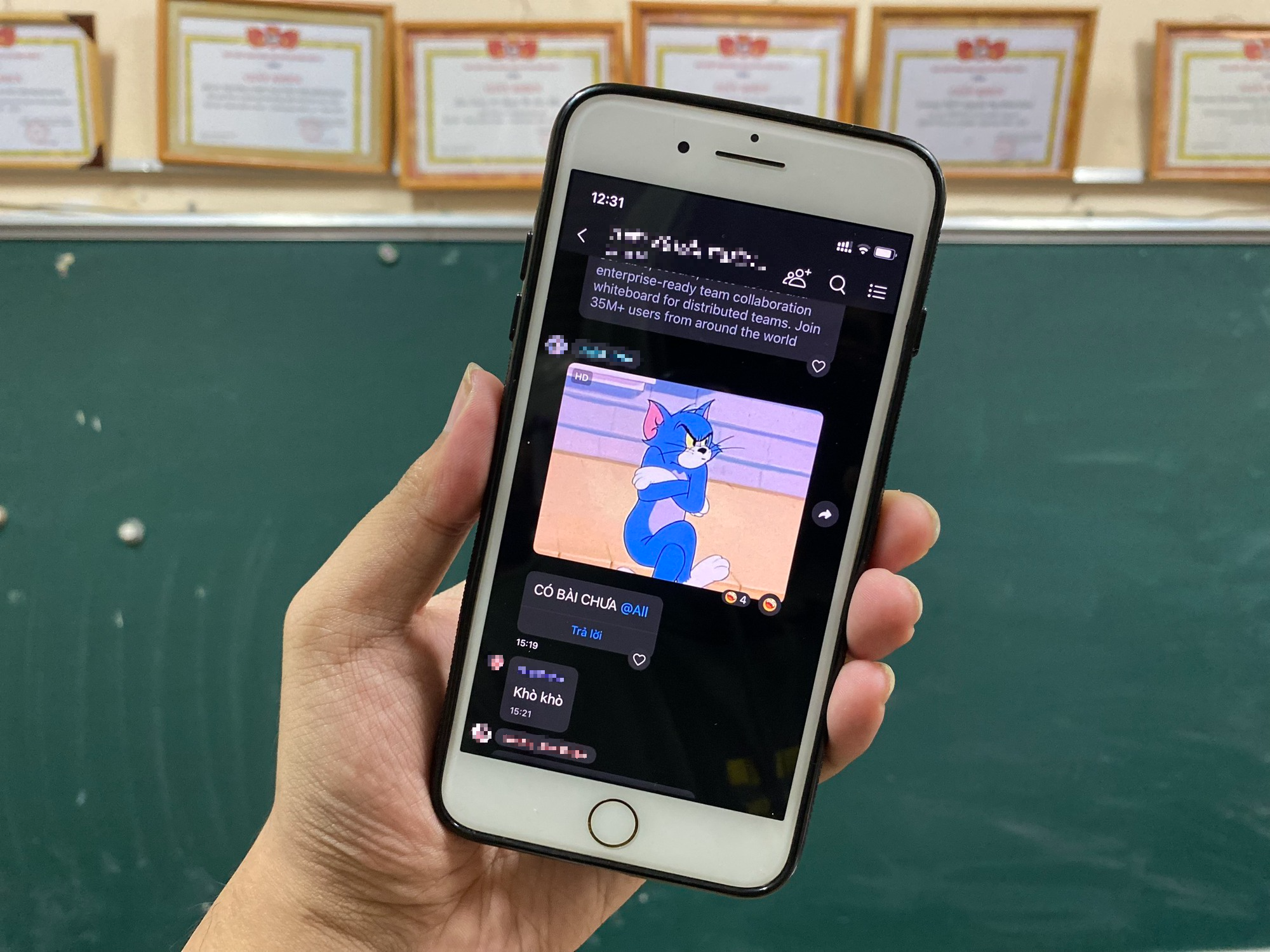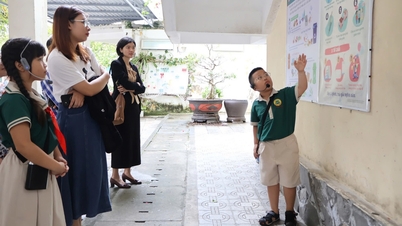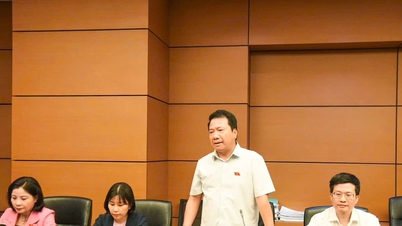Recently, a university lecturer shared the story of how she repeatedly reminded students to change the default "Hello, my name is... please be my friend" when they wanted to add Zalo as friends, and to clearly state their name and class before she would accept, otherwise she would "ignore" them. The female lecturer also said that although Generation Z is dynamic and creative... they have limitations in communication and behavior, such as texting, so they must be brave enough to look straight at them to clearly recognize and adjust.
Below the article, many readers agreed with this opinion. For example, reader Ngan Nguyen expressed: "Agree with the teacher. I also suggest that students stop texting 'teacher' or 'teacher, let me ask you' and then stay quiet and wait for the teacher to say 'hey' before presenting the main issue." Extending to life in general, account 297084 shared that when making friends with someone on social networks, they also need to introduce themselves fully, such as their name and purpose of getting to know each other.

Lecturers advise students not to use the default template "Hello, my name is... please be my friend" when adding Zalo friends with teachers.
The above views reflect an equally important aspect besides learning, which is the way teachers and students communicate in the school environment, especially when the students are no longer teenagers. In reality, how are Generation Z students behaving with lecturers, especially in cyberspace?
Communication depends on the age of the lecturer
Commenting on the communication characteristics of Generation Z, Le Phuong Uyen, a student at the University of Social Sciences and Humanities, Ho Chi Minh City, summed it up in two words: "open" and "creative". "We are willing to talk about any topic, including sensitive content such as sex, in different ways from standard to 'trendy', for example, recently I often use the pronouns 'she' and 'she' to refer to myself", Uyen said.
However, in the school environment, she believes that the two words "appropriate" and "respectful" should be added. Specifically, with young, friendly lecturers, students can sometimes joke and joke, or use common expressions with young people. But with older teachers, this should not be done because at this time the teachers are "like fathers and uncles in the family" and if they act too freely, it is easy to make the lecturer feel offended.
"But whether communicating with young or old lecturers, especially on social networks, I always use honorifics such as yes, yes, thinh, a... and consider the topic of conversation so as not to turn into harassment or attack the teachers. Making friends with lecturers also needs to be focused on. Like in my first year, before clicking the friend button on Zalo, I had to change the default form 'Hello, my name is...' to 'Hello, I am... studying in... with student code... Please add me as a friend so I can talk more with you'", Uyen recalls.

Zalo is currently a communication application that many lecturers love to use.
Agreeing with Phuong Uyen, Kieu Minh Hung, a student at the University of Social Sciences and Humanities in Ho Chi Minh City, said that today's students always maintain a certain level of restraint with their lecturers. "Maybe with some young or easy-going lecturers, we will behave more comfortably and dynamically, but basically still ensure the spirit of 'respecting teachers' in every word, gesture and thought," the male student confided.
However, in actual communication, Hung admitted that there are times when students cannot "control themselves" because of personal habits. "I once witnessed a case where students often texted teencode to friends, but when communicating with a lecturer, they got addicted and accidentally wrote teencode from 'co' to 'cs', causing the lecturer to misunderstand it as 'basis' and affecting the effectiveness of communication," he said.
Lecturers are also "teenagers"
A communication characteristic of today's youth is the frequent use of memes (images that are widely spread, popular), teencode and "trendy" sayings when texting online to make the conversation more lively and humorous. And according to Phan Ho Duy Khang, a student at Van Lang University (HCMC), this element also often appears in some Zalo chat groups with lecturers of male student classes.

A humorous conversation when a young female lecturer used a meme to remind her students to submit their assignments, then received a reply with the message "Khô khò" with the implication "I'm still sleeping so I don't have any assignments yet, teacher"
"In general, texting in a 'teenage' way only happens in groups with young teachers, and sometimes the teachers themselves are the ones who 'initiate' the use of memes to become closer to their students. This makes us feel more comfortable and confident in communicating because we don't have to be pressured to be meticulous in every word. However, some people are too comfortable, leading to 'overdoing it', losing respect," Khang said.
According to Khang, in some special contexts such as writing emails to lecturers, he and his friends often pay attention to formality and standards, both in language and form. "I always start with the phrase 'Dear teacher', then introduce myself and present the content to be discussed, and then conclude with the sentence 'Sincerely thank you teacher'. This comes from the concept that writing a letter must be different from normal texting," he shared.
Teachers also need to understand students
According to Phuong Uyen, not only students need to cultivate proper communication skills, but lecturers also need to be understanding and sympathetic if students unintentionally behave inappropriately, and at the same time limit some cumbersome "communication procedures". In addition, teachers and students also need to have prior agreements on appropriate behavior in the classroom and online, to avoid "closing the barn door after the horse has fled".
Giving further comments on how lecturers communicate with students, Minh Hung suggested that both sides could use the voice recording feature to save time and express the correct attitude they want to convey. "If applied, teachers should be the ones to proactively disseminate information so that students dare to do it, because many people still consider using this feature as disrespectful if the two sides are not close," he said. On the other hand, Duy Khang hopes that teachers always send messages with accents so that students can avoid the situation of "looking at the words and guessing the meaning".
Source link



![[Photo] Da Nang residents "hunt for photos" of big waves at the mouth of the Han River](https://vphoto.vietnam.vn/thumb/1200x675/vietnam/resource/IMAGE/2025/10/21/1761043632309_ndo_br_11-jpg.webp)
![[Photo] Prime Minister Pham Minh Chinh received Mr. Yamamoto Ichita, Governor of Gunma Province (Japan)](https://vphoto.vietnam.vn/thumb/1200x675/vietnam/resource/IMAGE/2025/10/21/1761032833411_dsc-8867-jpg.webp)
![[Photo] Prime Minister Pham Minh Chinh meets with Speaker of the Hungarian National Assembly Kover Laszlo](https://vphoto.vietnam.vn/thumb/1200x675/vietnam/resource/IMAGE/2025/10/20/1760970413415_dsc-8111-jpg.webp)







































































































Comment (0)